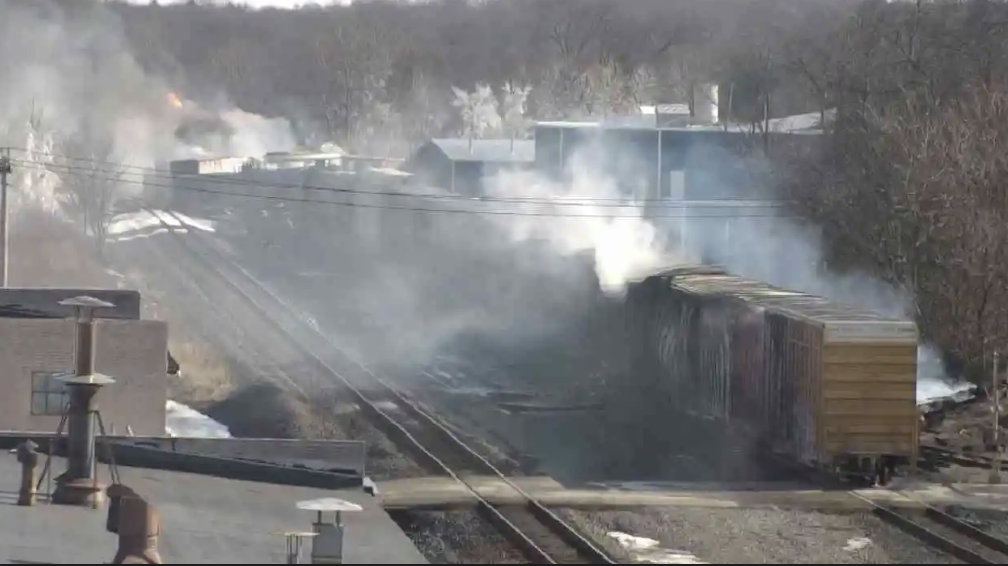The recent train derailment in East Palestine, Ohio, involving a Norfolk Southern train carrying hazardous materials, is only the most recent example of the dangers faced by vulnerable and often non-white communities that live close to train lines. Even in the absence of such a sensational and newsworthy event, studies show that living near a railroad can harm your health. From chronic stress to an increased risk of cancer, scientists say constant exposure to trains takes a toll on the human body.
In a 2022 study in the journal Environmental Research, Natalia Caldeira Loss Vincens, an expert in public health at the University of Gothenburg in Sweden, found a link between railway noise and incidences of diabetes, even when accounting for variables such as sociodemographic and lifestyle factors. Chronic stress can lead to “a cascade of pathophysiological changes,” says Vincens, including things like alterations to a person’s insulin sensitivity, inflammation, and changes in appetite. Heightened cortisol levels, a type of stress hormone, can lead to various health problems. Noise pollution and vibrations are some of the biggest concerns, particularly for people who live within one-third of a mile of railroads or railyards. “The whole idea is that these exposures to noise and other things, they are stressful,” says Vincens.
A 2012 environmental impact assessment conducted by the Huxley College of the Environment at Western Washington University studied the potential health impacts of increased coal train traffic and found:
Diesel particulate matter from diesel exhaust and fugitive emissions from passing and idling trains, and increased road traffic due to delays at road crossings are associated with:
- Impaired pulmonary development in adolescents;
- Increased cardiopulmonary mortality and all-cause mortality;
- Measurable pulmonary inflammation;
- Increased severity and frequency of asthma attacks, ER visits, and hospital admissions in children;
- Increased rates of myocardial infarction (heart attack) in adults;
- Increased risk of cancer.
- Noise pollution exposure from train traffic causes
- Cardiovascular disease, including increased blood pressure, arrhythmia, stroke, and ischemic heart disease;
- Cognitive impairment in children;
- Sleep disturbance and resultant fatigue, hypertension, arrhythmia, and increased rate of accidents and injuries; and
- Exacerbation of mental health disorders such as depression, stress and anxiety, and psychosis.
Noise pollution exposure from train traffic causes:
- Cardiovascular disease, including increased blood pressure, arrhythmia,
- Stroke and ischemic heart disease;
- Cognitive impairment in children;
- Sleep disturbance and resultant fatigue, hypertension, arrhythmia, and increased rate of accidents and injuries; and
- Exacerbation of mental health disorders such as depression, stress and anxiety, and psychosis.
Frequent long trains at rail crossings will mean:
- Delayed emergency medical service response times; and
- Increased accidents, traumatic injury, and death.
And in 2016, ACTION United, ForestEthics, and the PennEnvironment Research & Policy Center used the U.S. Environmental Protection Agency’s (EPA) newly published Environmental Justice methodology to investigate the disparate threat to environmental justice communities (based on race and income) from trains carrying crude oil through four Pennsylvania cities. They concluded that in Philadelphia, Pittsburgh, Harrisburg, and Reading, a disproportionate number of people living in environmental justice communities reside inside the dangerous oil train blast zone and that oil train routes contribute to environmental racism in Pennsylvania.

